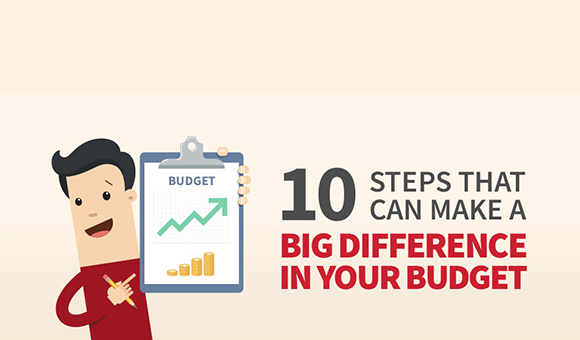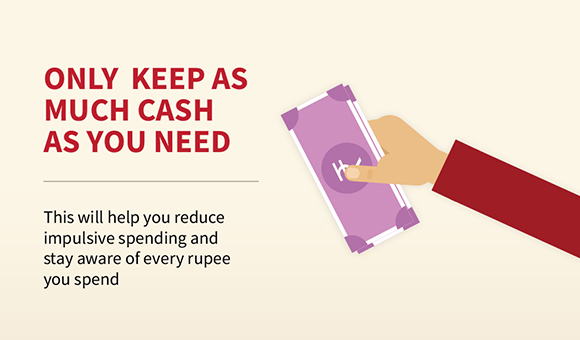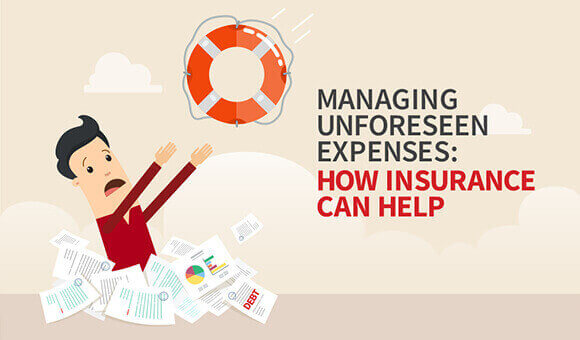7 Easy Ways to Control Overspending
Overspending can sneak up on anyone and put a dent in your wallet. But fear not, because managing your spending doesn't have to be complicated! In this blog, we'll explore seven simple and effective ways to help you gain control over your finances and keep overspending at bay.
Create a Budget
Creating a budget is like giving your money a roadmap. List all your monthly income and expenses. This will help you see where your money is going and make adjustments to prioritize essential expenses. Remember, the goal is to spend less than you earn.
Track Your Spending
Keep a record of every purchase you make for a few weeks. You can use a notebook or a budgeting app on your smartphone. Tracking your spending helps you become more aware of your habits and identify areas where you might be overspending.
Set Spending Limits
Before you head out shopping, set a spending limit for yourself. Whether it's for groceries, clothes, or entertainment, having a predetermined limit can prevent impulse buying and keep you focused on what you really need.
Use Cash or Debit Cards
Using cash or a debit card helps you stay within your budget. When the cash runs out or your card is empty, it's a clear sign to stop spending. Unlike credit cards, which can lead to overspending and accumulating debt, cash and debit cards limit your spending to what you actually have.
Avoid Emotional Spending
Retail therapy might feel good at the moment, but it can wreak havoc on your finances. Before making a purchase, ask yourself if you genuinely need the item or if you're buying it to fill an emotional void. Finding healthier ways to deal with emotions, like going for a walk or talking to a friend, can save you money and stress.
Wait Before You Buy
Practice the "30-day rule." If you find something you want to buy that isn't an immediate necessity, wait for 30 days before making the purchase. This waiting period gives you time to evaluate if it's truly something you need or if it was just an impulse.
Shop Smart and Compare Prices
Before making a purchase, shop around and compare prices. Online shopping makes this easier than ever. Look for deals, discounts, and coupons to get the best value for your money. Remember, a little extra time spent researching can save you a lot of money in the long run.
Conclusion
Controlling overspending doesn't require complex strategies or financial expertise. By creating a budget, tracking your spending, setting limits, using cash or debit cards, avoiding emotional spending, waiting before making purchases, and shopping smart, you can take charge of your finances and achieve your financial goals. These simple steps empower you to make mindful spending decisions and enjoy the peace of mind that comes with being in control of your money. Start implementing these practices today and watch your overspending habits transform into smart and intentional spending.
Related Topics

- Managing Money
Jaanniye Aasaan Tareeke EMI Ka Bhugtan Minton Mein Karne Ke!
Jaanniye Aasaan Tareeke EMI Ka Bhugtan Minton Mein Karne Ke!

- Managing Money
Which Saving Schemes Are The Best To Invest?
Saving money is a crucial aspect of financial planning, and choosing the right saving schemes can significantly impact your wealth accumulation.

- Managing Money
Boost Your Income With 3 Best Investment Plans
In a dynamic and ever-changing economic landscape, the quest for financial stability and growth is a common pursuit.

- Managing Money
Tax Planning For Salaried Employees - How To Save More?
Tax planning is a crucial aspect of financial management for salaried employees.

- Managing Money
Budget Planning Tips For A Better Financial Future
In a world marked by economic uncertainties and rapidly changing financial landscapes, effective budget planning is the cornerstone of a secure and prosperous future.

- Managing Money
Ways to Get in Better Financial Shape in 2024
As we step into a new year, many of us are eager to make positive changes in our lives, and one area that often takes center stage is our finances.

- Managing Money
How Can Personal Loans Help You Achieve Financial Independence?
In a world where financial goals often seem elusive, personal loans emerge as versatile tools that can empower individuals on their journey towards financial independence.

- Managing Money
How Personal Loan Apps Are Leading To A Financially Healthy India?
In recent years, the landscape of personal finance in India has undergone a transformative shift, thanks to the emergence of innovative financial technologies.

- Managing Money
How to Set Personal Finance Goals?
In the pursuit of financial stability and success, setting clear and achievable personal finance goals is a crucial step.

- Managing Money
6 Steps to Crafting the Perfect Money Management Plan
Managing your money wisely is like steering a ship through choppy waters – it requires planning, careful navigation, and a clear destination in mind.

- Managing Money
4 Steps to Build Personal Financial Discipline
Understanding taxes can be a bit tricky, but it's crucial for managing your finances effectively.

- Managing Money
5 Tips to Spend Less & Save More this Festive Season
The festive season is a time of joy, celebration, and togetherness.

- Managing Money
4 Investment Options to Start with This Festive Season
The festive season is not just a time for celebrations and joy; it's also an opportune moment to invest and grow your wealth.

- Managing Money
Financial Lessons To Learn From the Holiday Season
The holiday season is a time of joy, celebration, and spending time with loved ones.

- Managing Money
How to Set S.M.A.R.T Financial Goals?
In today's fast-paced world, setting financial goals is crucial to secure a stable future.

- Managing Money
Tax Deductions vs. Exemptions – Differences & Examples
Understanding taxes can be a bit tricky, but it's crucial for managing your finances effectively.

- Managing Money
5 Signs You Need to Revise your Money Goals
Money goals are like a roadmap for your financial journey. They help you navigate through life, ensuring you reach your desired destination of financial stability and security.

- Managing Money
7 Best Investments Options in India
Are you thinking about making your money work for you? Investing is a smart way to grow your savings over time.

- Managing Money
7 Ways to Teach Financial Literacy to Children
In a world where financial decisions play a crucial role in shaping our lives, imparting financial literacy to children has become more important than ever.

- Managing Money
What Your Lifestyle Reveals About Your Financial Future?
Have you ever wondered what your everyday choices say about your financial future? The way you live, spend, and save can give valuable clues about where your finances might be headed.

- Managing Money
How to Save Taxes Beyond Section 80C?
Wealth planning is essential for achieving financial security and prosperity. However, the road to build and preserve wealth is not without its share of risks. To ensure a successful journey, it is crucial to understand and effectively manage these risks. In this blog, we will explore the concept of risk management in wealth planning.

- Managing Money
Understanding Risk Management in Wealth Planning
Wealth planning is essential for achieving financial security and prosperity. However, the road to build and preserve wealth is not without its share of risks. To ensure a successful journey, it is crucial to understand and effectively manage these risks. In this blog, we will explore the concept of risk management in wealth planning.

- Managing Money
4 Most Common Types of Dividend Policies
When investing in the stock market, one of the most attractive aspects for investors is the potential to receive dividends. A dividend is a portion of a company's profits that is distributed to its shareholders. However, not all companies follow the same approach when it comes to distributing dividends.

- Managing Money
Long-term vs. Short-term Investments: Pros and Cons
When it comes to investing your hard-earned money, it's important to have a clear strategy in mind. Two common approaches are long-term and short-term investments.

- Managing Money
10 Effective Budgeting Strategies for Saving Money
Budgeting is a fundamental skill that empowers individuals to take control of their finances and work towards their financial goals. Creating a budget helps you track your income and expenses, identify areas where you can save money, and make informed financial decisions.

- Managing Money
Investing Wisely: Tips for Growing Your Wealth
Building wealth is a goal shared by many, but it can often seem like a complex and overwhelming task. However, with a few simple strategies and a basic understanding of investing, you can set yourself on the path to financial success.

- Managing Money
Building an Emergency Fund: Why It's Important & How to Start?
Life is full of surprises, and emergencies can happen when we least expect them. Whether it's a sudden medical expense, a car repair, or a job loss, having a financial safety net can make a world of difference.

- Managing Money
What is a Goal-based Investment & how should you do it?
When it comes to managing our finances, many of us are often unsure of where to begin. We may have dreams and aspirations, such as buying a house, funding our children's education, or retiring comfortably. However, without proper financial planning, these goals can remain distant dreams.

- Managing Money
How to Secure Your Investments During Inflation?
As a moneymaker, you have worked hard to build your portfolio and want to see solid returns over time. However, during periods of high inflation your investments and returns can come under pressure.

- Managing Money
How to Use 80C Deductions to Reduce Your Tax Burden?
Ever feel like you're paying too much in taxes each year? You're not alone. As a salaried employee, a huge chunk of your income goes towards taxes. But here's the good news: there are legal ways to reduce your tax burden. Section 80C of the Income Tax Act 1961 allows you to claim deductions on select investments and expenses.

- Managing Money
Common Mistakes to Avoid While Filing Income Tax Returns
You’re probably already aware of the need to file your income tax return (ITR) every financial year. But did you know that there are some common mistakes associated with filing ITRs? It’s important to be aware of these mistakes so that you can avoid them and make sure your ITR filing is accurate and effective.

- Managing Money
Old vs New Tax Regime: Which is the Best Option for You?
Tax planning plays an important role in managing finances effectively. With the introduction of the new tax regime in India, taxpayers now have the option to choose between the old and new tax regimes based on their financial goals and circumstances.

- Managing Money
Saving Vs. Investing: What’s The Difference?
Do you ever find yourself confused about the difference between saving and investing? You're not alone! While both involve putting money aside for the future, they are two distinct financial strategies.

- Managing Money
Where can you find extra funds to save!
Every small drop makes an ocean. Similarly, every rupee you save could come to use in the future. In this article, we offer you ways to save money in the most unlikely of ways.

- Managing Money
7 Budgeting pitfalls that can push your finances off track
Feel like your budget isn’t quite working? You could be making any of the budgeting mistakes listed here. Read on to know how Seema and Uday fixed their budgets successfully.

- Managing Money
Setting smart financial goals
It’s not just about how much you save. It’s also about how S.M.A.R.T you save. Find out what they are for you and how you can save for them.

- Managing Money
Right time to start saving: In your 20s or 30s!
This infographic shows when you should start saving and why through Aisha and Riya’s stories.

- Managing Money
Why is it important to have an emergency fund, How can you build one!
An emergency fund can provide a cushion in various situations. Read on to understand why you need it, and how you can build one.

- Managing Money
Where to park your emergency savings!
While emergency funds are meant to be easily accessible, that doesn’t mean you should store it all in cash. Instead, follow these tips to keep them secure yet accessible.

- Managing Money
How to start saving money
This article talks about old and new ways of saving money. It also mentions quick tricks to save more from everyday expenses.

- Managing Money
How to figure out how much to save in an emergency fund!
If you want to save but don’t know how much to, read this infographic to choose a method that suits you best from three easy options.

- Managing Money
Are you overestimating your income when budgeting!
Overestimating income is a more common mistake that you would think. In this article, we give you step-by-step guides to avoid spending with the assumption of having more money.

- Managing Money
How important is it to have medical insurance!
Sameer understood the importance of having medical insurance only after getting into an accident. Here’s what you can learn from his experience.

- Managing Money
How to keep your money safe from yourself!
Make your budget water-tight by using these tips to keep yourself from misspending your money.

- Managing Money
Teach your kids the whys and hows of money management
Responsible children grow up to be wise adults. Give your children the tools to become financially successful in the future with these tips.

- Managing Money
Know where all your money is going before you start budgeting
Vidhi complains to Arvind that despite budgeting as he had suggested, she still isn’t saving enough. Read this comic strip to know why and how Arvind helped her find a way to save thousands of rupees!

- Managing Money
Why should I save money when getting loans is so easy!
While taking a loan might be an easy option, it’s not advisable to borrow unnecessarily. Learn more about benefits of saving regularly and consistently.

- Managing Money
10 steps that can make a big difference in your budget
Having a fool-proof budget can get you on the right financial track. Use these 10 tips to keep your finances on track.

- Managing Money
How can you protect your family with life insurance!
Sahu ji is worried about his family’s wellbeing but doesn’t have a life insurance plan yet. Arvind helps him understand why it is important to get one.

- Managing Money
9 modern ways to save money
ONLY KEEP AS MUCH CASH AS YOU NEED This will help you reduce impulsive spending and stay aware of every rupee you spend

- Managing Money
8 budgeting apps that can make money management easier
GET SMART WITH YOUR MONEY MVELOPES. It divides your expenses into separate categories or 'envelopes' and allows you to set spending limits.

- Managing Money
How can insurance help you deal with emergencies!
Having an insurance plan is like having a life jacket – you won’t know how useful it is unless you really need it. Read on to understand how the most common types of insurance plans can help you.

- Managing Money
Questions you didn't know whom to ask about budgeting
Do you want to start budgeting but don’t understand how? We’ve answered budgeting FAQs that can help you kickstart your journey.

